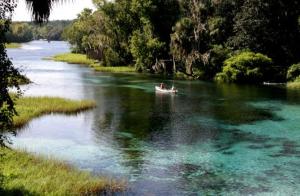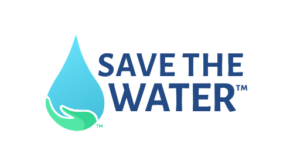
Article courtesy of Taylor Schaefer, staff writer for Save the Water™| November 3, 2014
As Florida residents drove past dozens of lawn signs and bumper stickers this past November, the slogan “Say yes to one” caught some attention. Since 2012, the Florida’s Water and Land Legacy worked tirelessly to secure one million votes and earn a place in the mid-term election (2). This year, the water conservation managed to land at the top spot on the ballot. After successfully gaining full support from Floridian voters, 4.2 millon people voted to pass amendment one, which requires the Land Acquisitions Trust Fund to restore and maintain wetlands including the Everglades, forests, drinking water sources, beaches, rivers and lakes (2).
Past legislature significantly reduced funding to water and land conservation by more than 95 percent.(2) As more funding is cut and conservation programs dismissed, companies that seek to take advantage of Florida’s natural resources have started to inch their way in. A different type of fracking called “acid fracking” has sprung up in different areas in southern Florida. Acid fracking is an old process used to dissolve rock and allow for more natural gas to flow up the well by using an acidic solution consisting of hydrochloric and hydrofluoric acid.(3) The acidic solution is shot into the ground beneath drinking water aquifers and Florida’s porous soils put aquifers at greater risk for contamination.(2)
The Florida Water and Land Conservation Amendment would require less than one percent of the state’s current budget. If the amendment is passed it would not increase taxes, but rather use existing fees collected through real estate transactions to support the project.(2) Some of the money may be used to buy up land that replenishes the Florida Aquifier, an underground aquifer that supplies the state with most of it’s drinking water.(1)
Many citizens in different areas of Florida are already concerned about the threat to the local drinking water supply and feel that this legislation may come to their aid. Will Abberger, a campaign manager for Florida’s Land and Water Legacy stated, “Pinella County draws from sources outside of the county for drinking water and we would be protecting some of those water resources.”(1)
On a national level, it seems many citizens are not as concerned with passing environmental conservation legislation, however,the importance of preserving freshwater sources around the country must be acknowledged. Even though The Water and Land Conservation Amendment passed with a 75% approval, there is much work to be done (2). Top priority conservation projects need to be implemented in districts around Florida, and voters need to be persistent with ensuring elected officials honor the intent of the amendment.
Sources
1. Bradshaw, Kate. October 5, 2014. “Florida’s Conservation Amendment Faces Hurdles.” The St. Petersburg Tribune. https://www.tallahassee.com/story/news/2019/03/31/citizen-driven-constitutional-amendments-face-new-legislative-hurdles/3311192002/
2. Florida’s Water and Land Legacy, 2014. “Vote Yes on One.” http://voteyeson1fl.org/sections/page/about
3. Phillips, Ari. May 12, 2014.“Company Drilling Near Everglades Claims Not To Be Fracking, Just Acid Fracking.” ThinkProgress. http://thinkprogress.org/climate/2014/05/12/3436749/florida-everglades-fracking-fine/

